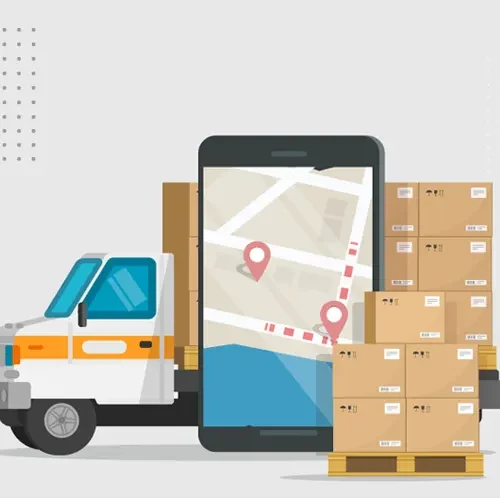Tracking apps have become increasingly popular, providing convenience and real-time presence to users who want to know or monitor the whereabouts of their trackable ones present now.
What could be the reason for not wanting to check on your kid’s journey home from school or your partner’s commute to work?
GPS tracking apps have seemingly innocent motives. However, it is crucial to recognize that tracking apps can present a darker side, as they can be exploited as tools for abusers to exert control over their victims.
While it may seem obvious that certain apps track your location for legitimate reasons, such as weather updates or discovering nearby stores, researchers have uncovered deceptive data collection practices.
A peer-reviewed study of almost one million Android apps revealed that almost 90 percent of these apps are designed to transmit information back to Google, highlighting the extent of data harvesting without users’ explicit consent.
Furthermore, it is important to be aware that many smartphone apps collect and share location data without users’ knowledge.
The collection of location data can have various significances, both positive and negative. On one hand, it facilitates services like mapping, traffic information, and personalized recommendations. On the other hand, it presents serious concerns about data privacy and the potential abuse of personal data.
The millions of dots on a map representing anonymous cellphone users’ paths illustrate this. Each dot represents a person who unknowingly reveals their movements as their smartphone tracks their every step. This information can be used to build detailed profiles of individuals, revealing their habits, routines, and even personal relationships.
One of the most troubling aspects of tracking apps is their potential for misuse of abusive relationships. Abusers may manipulate these apps to exert control and monitor their victims’ movements.
This can lead to feelings of surveillance, isolation, and increased vulnerability for the victims. It is crucial to recognize these privacy risks and ensure that individuals have control over their location data.
One path tracks someone from a home leaves a house in upstate New York at 10 a.m. and travels to a university 14 miles away, staying until late afternoon each university day. Only one person makes that trip: Magrin Hook, a 40-year-old math teacher. Her smartphone goes with her.
This article sheds light on the potential privacy risks associated with tracking apps and the concerning data practices.As a deputy project director at the ACLU’s Speech, Privacy, and Technology Project, Nathan Freed Wessler concentrates on litigation and advocacy regarding surveillance and privacy issues. This includes government searches of electronic devices and requests for sensitive data from third parties. He presented the case Carpenter v. United States in the U.S. in 2017. The Supreme Court seeks to affirm that law enforcement must get a search warrant before accessing cell phone location data from cellular service providers, as required by the Fourth Amendment.
A. Unveiling the Impact on Consumer Privacy!
Several apps access our real-time information, including local news, weather updates, personalized choices, and recommendations. However, what many users may not realize is that several apps collect and share their actual location data with third-party businesses.
This industry location data and how companies started leveraging this data to tailor advertising, understand consumer behavior, and drive profits. The widespread access to location data raises important questions about consumer privacy and the ethical implications of data-sharing practices in the digital ecosystem.
Behind the Scenes of Location Data Sharing:
Recent investigations have revealed that numerous apps receive anonymous but precise location data from users who enable location services for purposes such as accessing local data, usage patterns, browsing history, or other personal information. These apps act as conduits for collecting valuable location data, which businesses sell, utilize, or analyze to serve the interests of advertisers, retail outlets, and even hedge funds seeking insights into consumer behavior.
Market Dynamics and Financial Incentives:
The commodification of location data has created a booming market for location-targeted advertising, with estimated sales reaching a staggering $21 billion this year. Major players in the industry, such as IBM and the Weather Channel, have entered the arena to capitalize on the vast amounts of location data being generated by mobile devices.
For instance, IBM’s acquisition of the Weather Channel’s apps signifies a strategic move to integrate location-based insights into its services. Additionally, companies like Foursquare have pivoted towards becoming location marketing entities, highlighting the growing importance of location data in shaping business strategies.
Key Players and Investments:
The appeal of location data has attracted significant investments from prominent entities, including financial giants like Goldman Sachs Group, Inc. and tech innovators like Peter Thiel, the co-founder of PayPal.
These investments underscore the potential value and importance of location data in enhancing marketing efforts, understanding consumer preferences, and optimizing business operations. With the influx of capital and resources into location start-ups, the industry is poised for further growth and innovation in leveraging location-based insights.
Privacy Concerns and Ethical Considerations:
While the collection and utilization of location data offer valuable insights and opportunities for businesses, they also raise critical privacy concerns for consumers. The anonymous tracking of up to 200 million mobile devices in the United States, as reported, underscores the scale and scope of location data-sharing practices. Consumers may unknowingly consent to location tracking when using seemingly innocuous apps, resulting in the widespread dissemination of their personal information without adequate transparency or control.
B. Smartphone Apps are tied not to someone’s name or phone number!
Although companies claim they focus on patterns, the data they collect data can still identify individuals without consent.
One of the key arguments made by companies is that the data they collect is associated with a unique ID rather than someone’s name or phone number.
They argue that this makes it impossible to identify a specific person based on the data alone. However, this argument overlooks the fact that anyone who has access to the raw data, including employees or clients, could potentially identify someone without their consent.
For example, someone with access to the data could follow someone they knew based on the location data collected by their phone. By pinpointing a smartphone app that regularly spent time at that person’s home address, they could easily identify who they were.
Alternatively, they could work in reverse, by attaching a name to an anonymous dot. By seeing where the device spent nights and using public records to figure out who lived there, they could easily identify the person behind the data.
The risk of data privacy violations is particularly high when the data is collected by third-party apps. Many apps collect data even when they are not in use, and users may not be aware of the data they are sharing with these apps. In some cases, users may be required to grant permission to access their location or other personal information to use the app. However, they may not realize that the app is collecting additional information without their consent.
To address these concerns, many countries have implemented strict data privacy laws that require companies to obtain explicit consent from users before collecting any personal data. These laws also require companies to disclose how they will use the data they collect and provide users with the option to opt out of data collection altogether. Additionally, companies that do collect personal data must take steps to protect the information they collect and to prevent it from being accessed by unauthorized individuals.
To address these concerns, companies need to be transparent about the data they collect, get explicit consent from users, and take steps to protect the personal information they collect. Only in this way can we ensure that our data is used responsibly and ethically.
According to The Times, the companies’ explanations given to users when they are asked to grant permission to access their personal information are often unclear or incomplete.
For instance, most apps may state that allowing access to the user’s location will help them get traffic or engagement updates, but fail to mention whether the data will be shared or sold to third parties or not. This critical information is often hidden in a vague privacy policy and can be difficult for users to find.
Geo-location information can reveal some of the most intimate details of a person’s life — whether you’ve visited a dentist, whether you went to attain night party, whether you preferred to buy some clothes, who you might date, everything is tracked by apps admin panel. And they design a personalized campaign according to your shopping behavior. But up to this limit may be considerable. But if you sell your user’s data to a third party or any malpractitioner can breach those data from your database. That could be a red flag.
Senator Ron Wyden, a senior United States senator Democrat from Oregon, has introduced bills to restrict the unregulated collection and sale of data in the United States.
He added that it is unfair to keep consumers in the dark about how their data is sold and shared, and then leave them powerless to do anything about it.
C. Exploring Rules to Crack Down on Harmful Commercial Surveillance and Data Security by Removing the Dark Side of Mobile Apps!
On August 11, 2022, the Federal Trade Commission (FTC) made an important announcement regarding its intention to address the issues surrounding harmful commercial surveillance, removing global impact from the Dark Side of Mobile Apps, and lax data security. This move comes in response to the growing concerns regarding the cluster, analysis, and making money from people’s information by businesses in what is known as commercial surveillance.
With the prevalence of mass surveillance, the risks associated with data breaches, subterfuge, manipulation, and other digital abuses have significantly increased. In light of these concerns, the FTC’s Advance Notice of Proposed guidelines seeks public comment on the abuses stemming from commercial surveillance and whether new rules are necessary to protect people’s privacy and information.
One aspect of commercial surveillance that has gained attention is the sharing of location data by popular apps. According to data from mobile analysis firm MightySignal in 2018, over 1,000 popular apps contained location-sharing codes from various companies. Notably, Google’s Android system was found to have approximately 1,200 apps with such code, while Apple’s iOS had about 200.
Among these companies, Reveal Mobile from North Carolina stood out as the most prolific, with its location-gathering code present in over 500 apps, including many that provide local news. A spokesperson from Reveal Mobile defended their code, stating that its popularity established its value in helping app developers generate Ad revenue and allowing consumers to benefit from free services.
To evaluate the practices of location-sharing, The New York Times conducted tests on 20 apps that had been identified by researchers and industry insiders as potentially sharing location data. The results revealed that 17 of the apps sent precise latitude and longitude information to approximately 70 different businesses.
Particularly concerning was the finding that WeatherBug on iOS transmitted precise location data to 40 companies. After being contacted by The Times, some companies who received the data described it as “unsolicited” or “incorrect.”
The FTC’s initiative to seek public comment on harmful commercial surveillance and data security is a crucial step toward protecting people’s privacy and information in today’s digital landscape. It opens up a dialogue on the risks and impacts associated with commercial surveillance and provides an opportunity to explore the need for new rules and regulations to address these concerns effectively.
As these discussions unfold, app developers, businesses, and consumers must remain aware of the Dark Side of Mobile Apps and the potential privacy implications of sharing location data and other personal information. Additionally, industry stakeholders should prioritize data security measures to prevent unauthorized access or breaches that could lead to the misuse of sensitive information.
FTC’s exploration of rules to crack down on harmful commercial surveillance by promoting awareness of the Dark Side of Mobile Apps, and lax data security sets the stage for a more privacy-focused future. By addressing the risks associated with commercial surveillance and enhancing data security practices, we can safeguard individuals’ privacy and ensure a more transparent and responsible digital ecosystem.
How to Protect Yourself from Location Tracking Apps?
With the increasing concerns surrounding location tracking by apps, it’s important to take steps to safeguard your privacy. Fortunately, there are measures you can take to avoid these issues and regain control over your location data.
To protect your privacy mitigate the risks associated with tracking apps, and prevent you from falling into the Dark Side of Mobile Apps, you need to consider the following steps:
- Review App Permissions: Take the time to review the permissions requested by apps on your device. Be mindful of granting unnecessary permissions, especially those related to location tracking.
- Delete Unnecessary Apps: The first and most explicit security measure is to delete unnecessary apps from your devices. Both Apple and Android devices allow you to view the applications to which you have granted location access. By assessing these settings, you can identify which apps track your location continuously and which do so only when the app is open. If you find any apps that you no longer use or feel uncomfortable with their level of location tracking, don’t hesitate to delete them.
- Limit Location Sharing: Change the location settings on your device to allow apps to access your location only when they are being actively used, rather than allowing continuous tracking.
When using apps that request location access, it’s essential to exercise caution and consider your privacy requirements. Often, users are presented with a false choice: either agree to continuous tracking or receive persistent reminders. It’s important to remember that you have the right to decline the app’s location requests if you don’t see a genuine need for it. By declining unnecessary location access requests, you can maintain control over your privacy. Additionally, consider disabling notifications from these apps so that you won’t be constantly reminded to enable location tracking.
- Regularly Audit Apps: After short intervals review your used smartphone apps which are installed on your smart device. Remove any that you no longer use or that have questionable data collection practices.
- Educate Yourself: Stay informed about the data collection practices of the apps you use. Familiarize yourself with their privacy policies and opt for alternatives that prioritize user privacy.
Conclusion:
While tracking apps may seem innocent and convenient at first glance, it is crucial to recognize the potential privacy risks they pose. Data collection practices by these apps, often without explicit consent, can lead to the misuse and exploitation of personal information.
Additionally, tracking apps can be used as tools for abuse and control in certain circumstances. By staying informed, reviewing permissions, and actively managing your privacy settings, you can protect yourself and mitigate potential risks associated with tracking apps.
To mitigate the risks of being tracked or having personal data exposed, lower the threats by disabling location services, managing mobile apps, restricting Ad tracking, preventing image hacking, and enabling privacy settings in your device’s browser. We, at Maven Technology, a leading Mobile Application Development firm, shared this article to raise public awareness.



